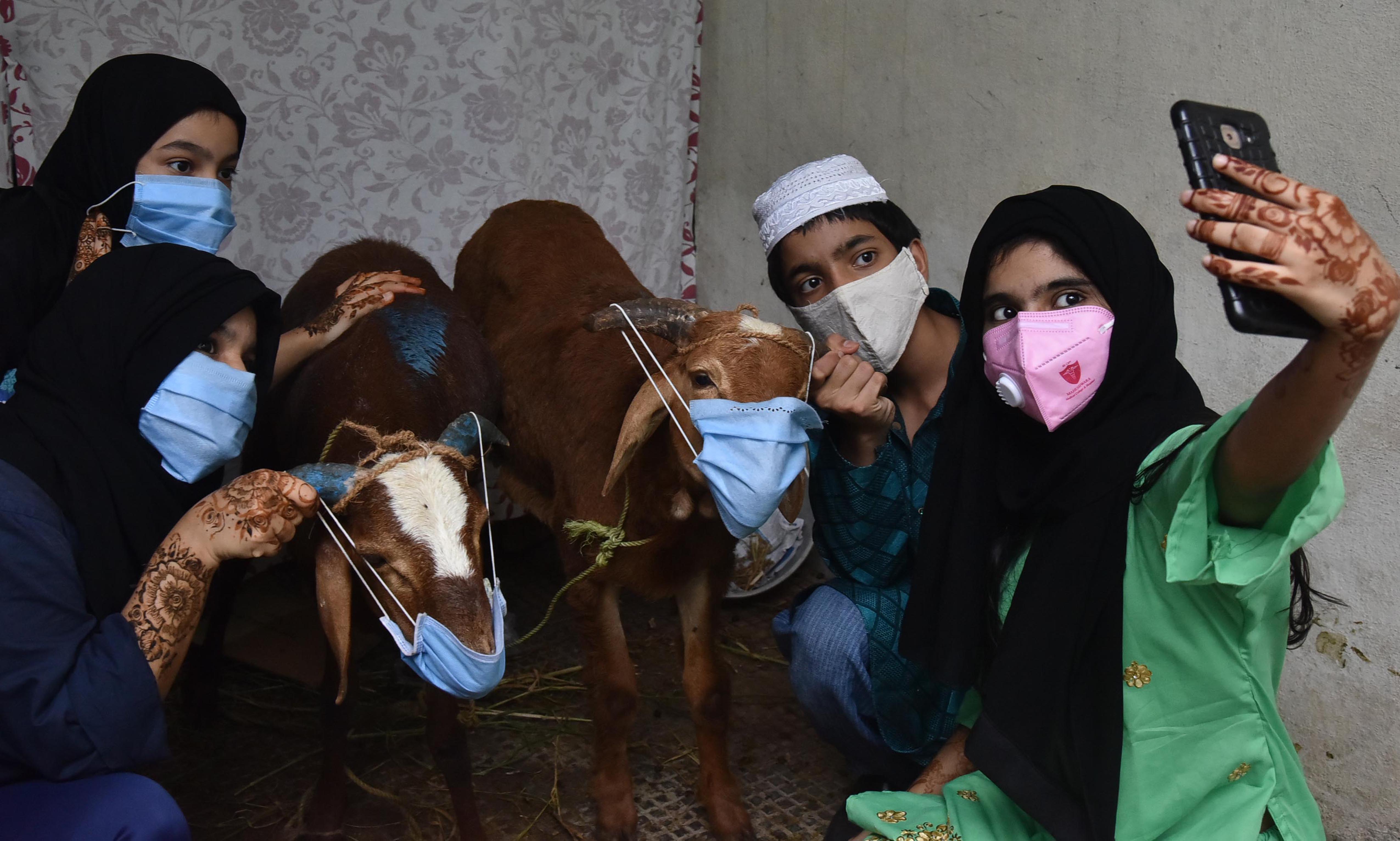 Eid-ul-Adha
Eid-ul-Adha Amid COVID-19 pandemic, India celebrates Eid-ul-Adha
Kolkata: Amid COVID-19 outbreak and rising cases across the country, India is observing Eid-ul-Adha on Saturday.
Muslim devotees arrived in mosques to offer prayers during the second most important festival of the people following the Islamic religion.
People have to maintain social distancing and other norms while celebrating the festival this year.
President Ram Nath Kovind urged people to maintain social distancing norms to prevent COVID-19 spread.
Eid Mubarak! Idu’l Zuha symbolises the spirit of sacrifice and amity which inspires us to work for the well-being of one and all. On this occasion, let us share our happiness with the needy and follow social distancing norms and guidelines to contain COVID-19 spread.
— President of India (@rashtrapatibhvn) August 1, 2020
Indian President Ram Nath Kovind's official Twitter handle posted: "Eid Mubarak! Idu’l Zuha symbolises the spirit of sacrifice and amity which inspires us to work for the well-being of one and all. On this occasion, let us share our happiness with the needy and follow social distancing norms and guidelines to contain COVID-19 spread."
Eid Mubarak!
— Narendra Modi (@narendramodi) August 1, 2020
Greetings on Eid al-Adha. May this day inspire us to create a just, harmonious and inclusive society. May the spirit of brotherhood and compassion be furthered.
Wishing Indians on the occasion, PM Narendra Modi tweeted: "Eid Mubarak!
Greetings on Eid al-Adha. May this day inspire us to create a just, harmonious and inclusive society. May the spirit of brotherhood and compassion be furthered."
Eid al-Adha, commonly known as Bakri Eid in India, is the second of the two holidays, coming months after Eid al-Fitr. The three-day festival starts on the tenth day of the Islamic month of Dhu al-Hijjah. It also marks the end of the annual Hajj (Pilgrimage) to Mecca.
According to Islam, Eid al-Adha started off to commemorate the willingness of Ibrahim to sacrifice his young son in obedience to God. Pleased with his devotion, the Lord spared him the misery and was told the sacrifice was already granted.
The traditional ritual consists of the ritual of sacrificing animals like goat, buffalo, cow or camel.
The meat is then divided into three parts. One third of it is retained by the family. The second of the third is given to friends and relatives. The poor and needy, feasts on the remaining third.
Support Our Journalism
We cannot do without you.. your contribution supports unbiased journalism
IBNS is not driven by any ism- not wokeism, not racism, not skewed secularism, not hyper right-wing or left liberal ideals, nor by any hardline religious beliefs or hyper nationalism. We want to serve you good old objective news, as they are. We do not judge or preach. We let people decide for themselves. We only try to present factual and well-sourced news.







